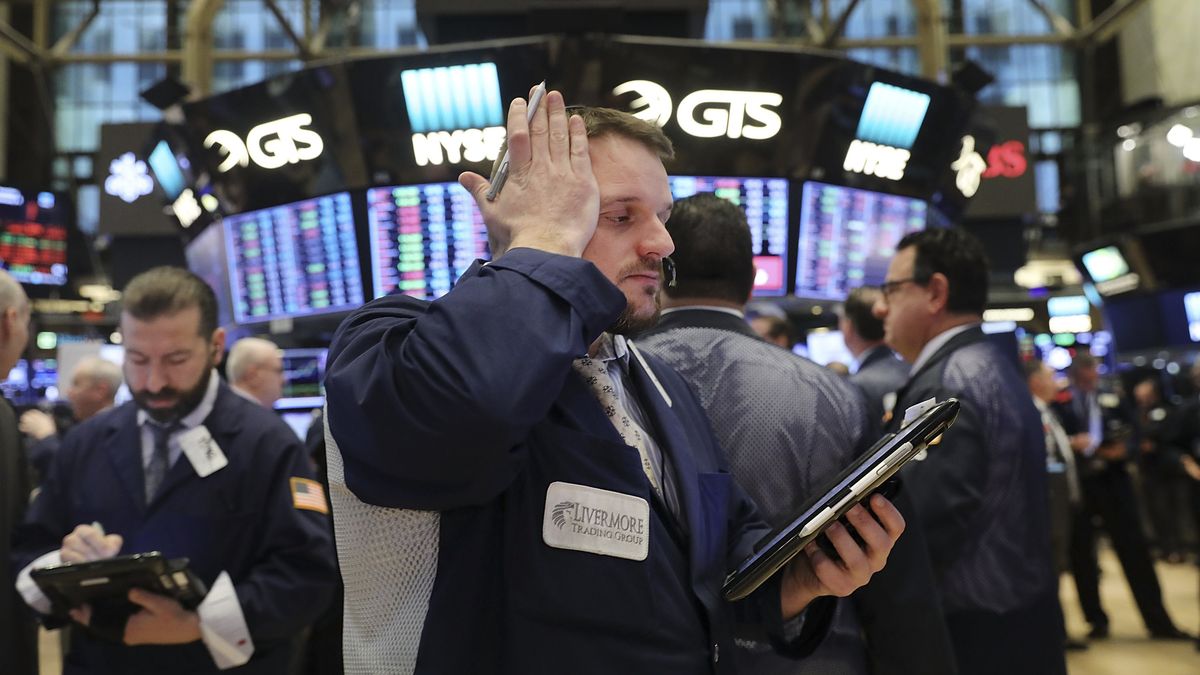In this context, the Dow Jones index of industrialists fell 4% to 40,545.93 points; The S&P 500 lost 4.8% to 5396.52 points and the Nasdaq Composite depreciated 6% to 16,550.61 points.
China faces an additional 34% tariff, which adds to the rights of 20% already in force. The European Union, Japan and other countries will see tariffs that will range between 20% and 49%. General tariffs enter into force on April 5, and specific increases per country begin on April 9.
Trump justified tariffs alleging unfair commercial practices and exchange manipulation, stating that these measures would revitalize US industries and reduce national debt.
The announcement of US tariffs was more aggressive than expected, Especially for Europe and China, with 20% and 54% rates “respectively, said Barclays analysts in a note. “Although there may be a margin of negotiation and many unexpected twists, elevated tariffs and persistent uncertainty increase the risk of recession. It probably worsens before improving for actions.”
UBS estimates that, if these tariffs are maintained, the real GDP could decrease between 1.5 and 2 percentage points in 2025, while inflation could approach 5%.
The Swiss bank states that this scenario “It has the potential to worsen considerably the combination of growth and inflation in the US and the world economy next year.”
UBS analysts established a short -term objective of 5,300 points for the S&P500, but warned in a note to their clients that continuous tariff uncertainty could lead to the index below 5000.
The actions suffered a “tsunami” from low
Several of the country’s main corporations have been seriously affected by the news about tariffs, such as Applewhich descended 10% given the high rate imposed on China, the basis of much of the manufacture of the mega company.
Jefferies analysts warned that the tariffs proposed by the US about Chinese imports could significantly affect the profitability of Apple, estimating a possible 14% reduction in the company’s net benefit for fiscal year 2025 if an exemption is not granted.
The titles of the large sellers of imported products are among the most affected. Five Below (-26.1%), Dollar Tree (-12%) and GAP (-20%), suffered percentage losses of two digits.
The retail sector was also seriously impacted, with Nike (-13%) and Walmart (-2,8) collapsing after the imposition of tariffs on important production centers, such as Vietnam, Indonesia and China.
Technological actions also broke due to a generalized risk aversion, with Nvidia (-7%) and Tesla (-5.6%) Descending the latter what he won on Wednesday, given the appearance of reports on Executive Director Elon Musk, who could give up his position in the government to focus on the company.
The greatest increases and casualties of the wheel
Among the actions that were most appreciated appear The Goodyear (+11.7%), Lamb Weston (+11.4%), Banorte (+11.1%), Vesta (+9.6%) and Molina Healthcare (+7.5%).
While the most resigned value found, RH (-39.5%), VF (-28.7%), Way Fair (-27.3%), Five Below (-26.1%) and Carvana (-20.8%).
Warren Buffett The Advance of Always
A Fortune’s report on Thursday stressed that the executive director of Berkshire Hathaway sold $ 134,000 million in shares in 2024, ending the year with a huge cash reserve of US $ 334,000 million, almost double that in 2024 and exceeding the increasingly reduced shares portfolio of the company.
“Buffett’s actions during the last year were a classic example of turbulence positioning,” said Armando González, founder of Bigdata.com.
The Nasdaq remains in correction territory after more than 10% from its maximum falls, while the S&P 500 also entered correction before Friday’s rebound reduced the losses to just under 10%, given these falls, Buffett’s accumulation seems very timely.
González also noted that the recent statements of Buffett reflected caution, emphasizing concerns about inflation and geopolitical risks, including warnings that tariffs imposed by President Donald Trump will raise prices and history shows that when Buffet becomes a net seller, he often anticipates a period of poor market performance.
Although Buffett made some purchases of shares, his history suggests “that he prefers to wait for deep discounts before making important movements”, to what Gonzalez adds that the great investor has no interest in timing the market fund and does not pursue rebounds in the short term.
Shares prices are not yet “extremely cheap”
Cathy Seifert de CfFra Research told Fortune “that Buffett could wait longer, although it would not be surprised if Berkshire expands his insurance participations.”
Source: Ambito
I am a 24-year-old writer and journalist who has been working in the news industry for the past two years. I write primarily about market news, so if you’re looking for insights into what’s going on in the stock market or economic indicators, you’ve come to the right place. I also dabble in writing articles on lifestyle trends and pop culture news.




